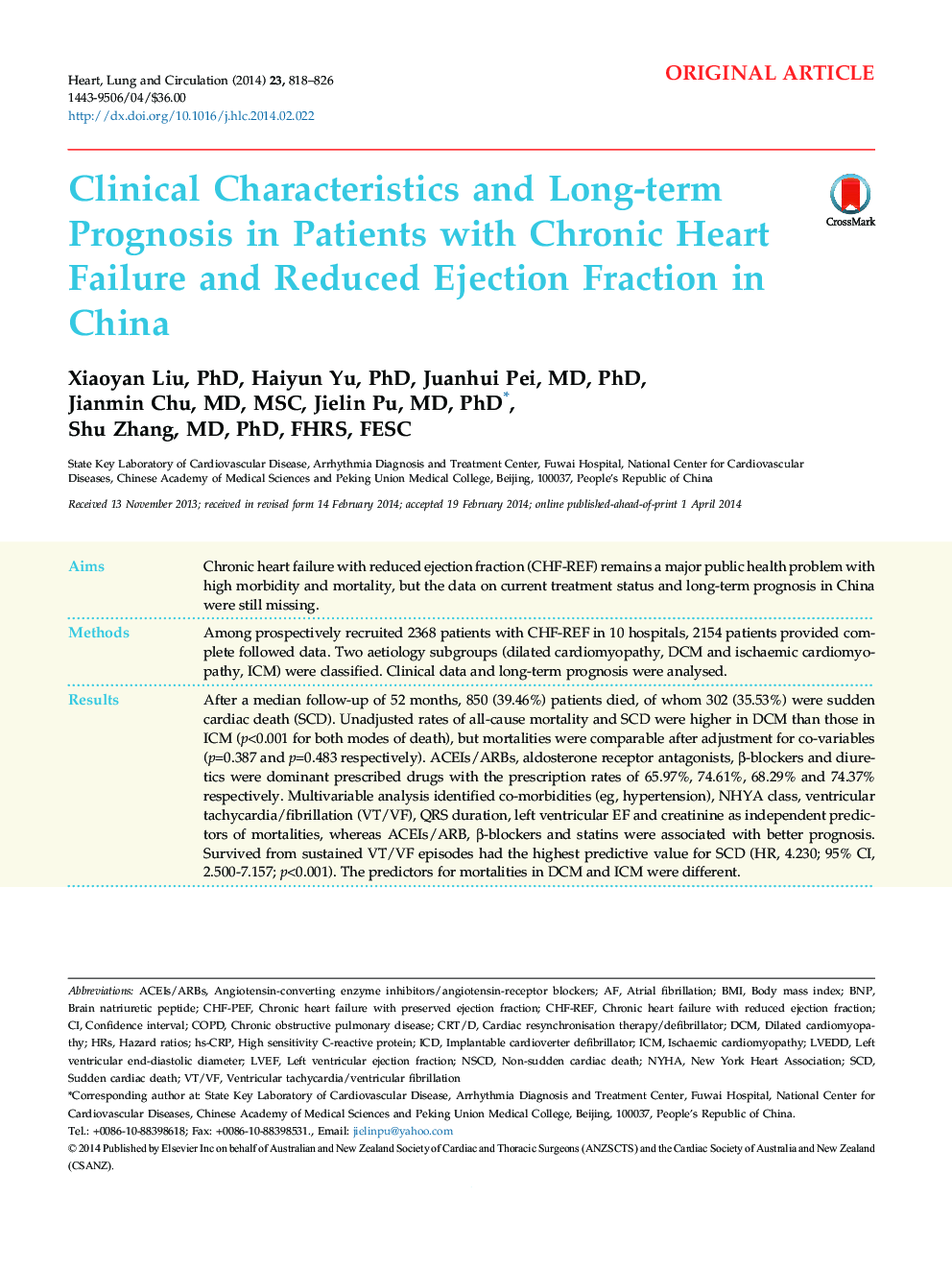| Article ID | Journal | Published Year | Pages | File Type |
|---|---|---|---|---|
| 2917918 | Heart, Lung and Circulation | 2014 | 9 Pages |
AimsChronic heart failure with reduced ejection fraction (CHF-REF) remains a major public health problem with high morbidity and mortality, but the data on current treatment status and long-term prognosis in China were still missing.MethodsAmong prospectively recruited 2368 patients with CHF-REF in 10 hospitals, 2154 patients provided complete followed data. Two aetiology subgroups (dilated cardiomyopathy, DCM and ischaemic cardiomyopathy, ICM) were classified. Clinical data and long-term prognosis were analysed.ResultsAfter a median follow-up of 52 months, 850 (39.46%) patients died, of whom 302 (35.53%) were sudden cardiac death (SCD). Unadjusted rates of all-cause mortality and SCD were higher in DCM than those in ICM (p<0.001 for both modes of death), but mortalities were comparable after adjustment for co-variables (p=0.387 and p=0.483 respectively). ACEIs/ARBs, aldosterone receptor antagonists, β-blockers and diuretics were dominant prescribed drugs with the prescription rates of 65.97%, 74.61%, 68.29% and 74.37% respectively. Multivariable analysis identified co-morbidities (eg, hypertension), NHYA class, ventricular tachycardia/fibrillation (VT/VF), QRS duration, left ventricular EF and creatinine as independent predictors of mortalities, whereas ACEIs/ARB, β-blockers and statins were associated with better prognosis. Survived from sustained VT/VF episodes had the highest predictive value for SCD (HR, 4.230; 95% CI, 2.500-7.157; p<0.001). The predictors for mortalities in DCM and ICM were different.ConclusionsPatients with CHF-REF had a poor prognosis in China despite being under current standard therapies, especially patients with DCM. Predictors for all-cause mortality and SCD might be identified for evaluating the prognosis of these patients.
